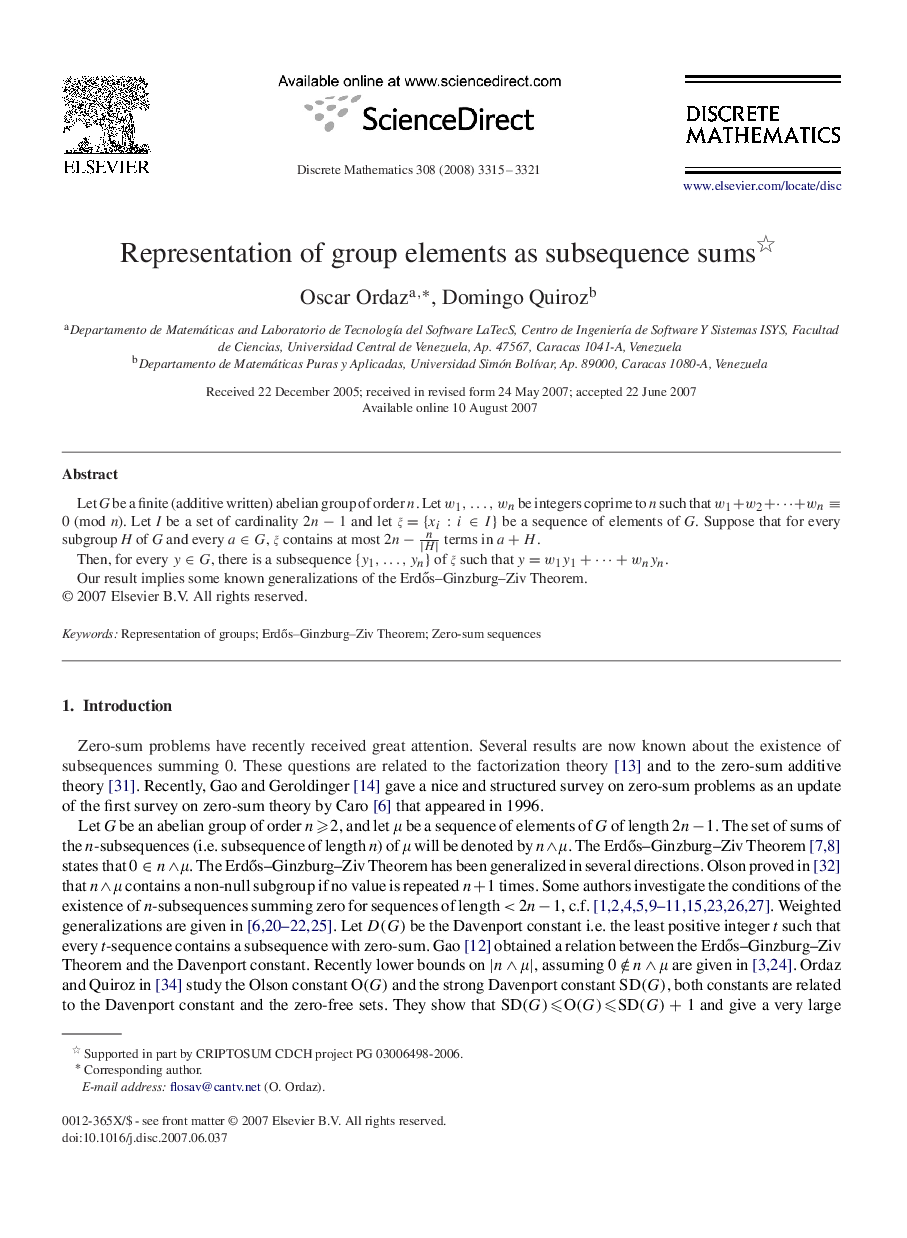| Article ID | Journal | Published Year | Pages | File Type |
|---|---|---|---|---|
| 4650553 | Discrete Mathematics | 2008 | 7 Pages |
Abstract
Let G be a finite (additive written) abelian group of order nn. Let w1,…,wnw1,…,wn be integers coprime to n such that w1+w2+⋯+wn≡0w1+w2+⋯+wn≡0 (mod n). Let I be a set of cardinality 2n-12n-1 and let ξ={xi:i∈I}ξ={xi:i∈I} be a sequence of elements of G. Suppose that for every subgroup H of G and every a∈Ga∈G, ξξ contains at most 2n-n|H| terms in a+Ha+H.Then, for every y∈Gy∈G, there is a subsequence {y1,…,yn}{y1,…,yn} of ξξ such that y=w1y1+⋯+wnyny=w1y1+⋯+wnyn.Our result implies some known generalizations of the Erdős–Ginzburg–Ziv Theorem.
Related Topics
Physical Sciences and Engineering
Mathematics
Discrete Mathematics and Combinatorics
Authors
Oscar Ordaz, Domingo Quiroz,
